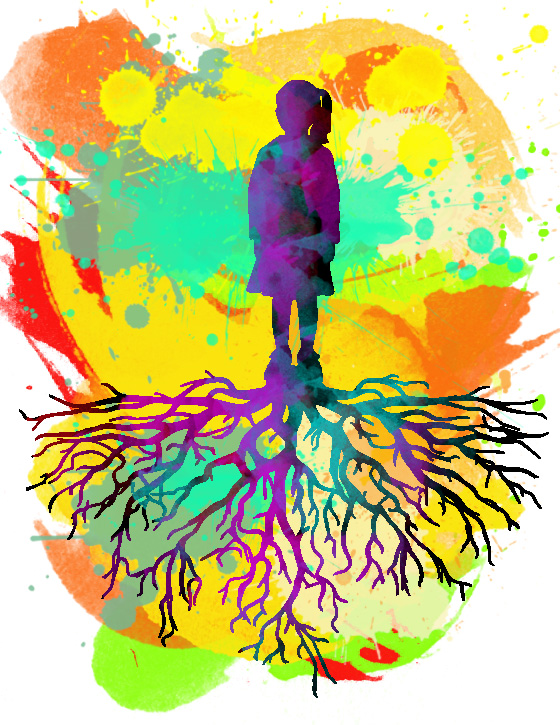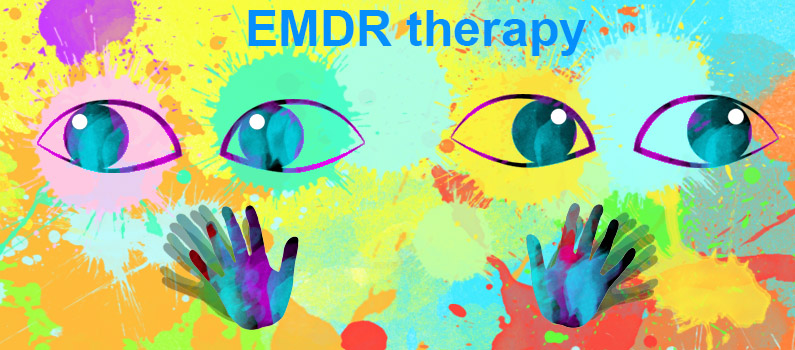
February 23, 2026
A powerful, evidence-based therapy for healing trauma and reducing distress

EMDR stands for Eye Movement Desensitisation and Reprocessing. It is a structured therapy designed to help people recover from trauma, anxiety, distressing memories, and challenging life experiences.
What sets EMDR apart from therapies like Cognitive Behavioural Therapy or traditional talking therapies is that it does not require going into detailed verbal accounts of the traumatic experience. Instead, EMDR works by activating the brain’s natural healing processes through rhythmic, bilateral stimulation, such as eye movements, taps, or sounds that alternate between the left and right sides of the body.

EMDR uses bilateral (left-right) stimulation, such as eye movements, tapping or sounds, to activate both sides of the brain. In fact you move your eyes every night from side to side when you are dreaming. This is called the REM (Rapid Eye Movement) sleep cycle which supports the relocation of memories, which currently feel very present and active, to an area of the brain that stamps them for time and date. The memories are then experienced as older, which can reduce emotional overwhelm and support healing.
You will not have to retell your story in EMDR sessions if you do not wish to. Instead, you will be guided to notice what is coming up, without needing to explain everything, which makes it a gentler process for many people.
Reduce the emotional charge around painful memories or experiences that once felt overwhelming.
EMDR helps your brain file things in the right place, so you can respond rather than react, and feel more grounded in your everyday life.
It is not just about processing trauma. EMDR helps reinforce your inner resources, strengths, and self-beliefs.
By calming the nervous system and reducing inner distress, many people experience better sleep, clearer thinking, and greater peace of mind.


EMDR was originally developed for post-traumatic stress (PTSD), but is now used to support clients with a wide range of challenges, including:
If you feel stuck, overwhelmed, or find that past experiences keep affecting your present, EMDR may be a powerful path forward.


EMDR is structured into eight phases, starting with building trust, understanding your goals, and learning calming techniques.
Sessions are 50 minutes long and may include:
You are always in control. Your therapist will check in regularly, and you can pause or slow down the process at any time.

At Inspire Wellbeing Services, we offer EMDR in a calm, supportive environment, adapted to your unique needs and pace.
We take a trauma-informed, client-centred approach, meaning we focus on safety, trust, and building your inner resources before we start processing difficult memories.
Our EMDR therapists are fully trained and accredited, and have experience supporting clients with a wide range of life experiences, backgrounds, and identities.
Whether you are healing from trauma, living with anxiety, or simply looking to feel more free and settled within yourself, we are here to walk that journey with you.
No, talking about your trauma is not necessary. One of the strengths of EMDR is that you don’t need to tell your full story. You will be guided to focus on what is coming up for you, without needing to explain everything out loud.
Yes, EMDR is a safe and well-researched therapy. Your therapist will make sure you are ready and supported at every stage, and you will learn tools to manage any emotional responses that come up.
It depends on your history and goals. Some people notice big shifts after just a few sessions, while others benefit from a longer process. Your therapist will talk this through with you at the start.
Yes, EMDR has been adapted so that it can be used with children. EMDR therapists use techniques tailored to the child’s emotional development and cognitive abilities. For example, the therapist may use play, drawings or storytelling to help younger children engage with traumatic memories, whilst older children may use words. Sometimes the parent/carer may be involved in the session to support their child and help with processing their experiences.

February 23, 2026

February 3, 2026
January 16, 2026
Get in contact with a member of our team for the right support